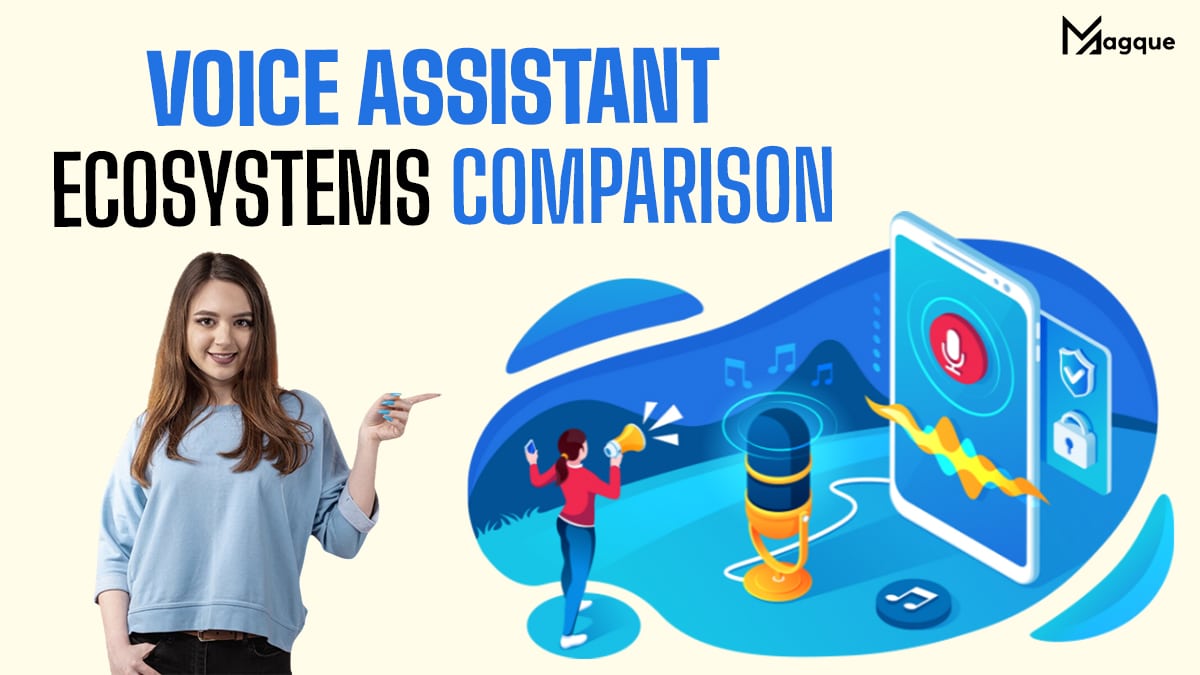In technology, voice assistants have moved from a novel idea to an integral part of our daily lives. Whether asking for the weather, setting reminders, or controlling smart home devices, voice assistants have made life simpler and more efficient. Today, let’s unpack the various ecosystems powering these digital helpers, specifically focusing on how they’ve transformed our interaction with technology. We’re diving into this topic because it’s fascinating and because understanding these ecosystems can genuinely enhance your tech experience. So, buckle up as we embark on a comparison journey that’s as informative as it is engaging.
The Titans of Voice: Siri, Google Assistant, and Alexa
Siri, Apple’s pioneer in voice technology, broke ground by integrating a voice-controlled assistant into our smartphones. It’s like having a genie in your pocket; you speak, and voila, information at your fingertips. Moving beyond Siri, Google Assistant steps in with its robust search engine backbone, offering answers and personalized insights. Imagine asking a friend for advice, and they remember all your likes and dislikes—that’s Google Assistant for you.
Then there’s Alexa, Amazon’s contribution to the voice assistant world. Alexa brings a unique flavor, focusing on smart home integration and shopping. It’s akin to having a personal shopper and home manager rolled into one, always ready to assist.
Understanding the Ecosystems
Each of these assistants doesn’t work in isolation; they are part of broader ecosystems that enhance their functionality. Apple’s Siri operates seamlessly within the iOS ecosystem, making it a go-to for iPhone users who appreciate the integrated experience. With its integration across Android devices and Google services, Google Assistant shines, offering a more open-ended ecosystem that caters to customization and versatility. On the other hand, Amazon’s Alexa excels in the smart home arena, with an extensive array of compatible devices and a focus on making your home more intelligent and interconnected.
Which Ecosystem Suits You Best?
Choosing the right ecosystem depends on what you value most. Are you looking for unparalleled device integration and value privacy? Siri within the Apple ecosystem might be your best bet. If customization and information are your priorities, Google Assistant offers an expansive knowledge base with a highly adaptable interface. Alexa’s ecosystem provides a wide range of compatibilities and functionalities for those invested in creating a smart home.
Conclusion: Embracing the Future of Voice
As we delve into the nuances of each ecosystem, it’s clear that voice assistants are more than just a convenience; they’re a leap toward making technology more accessible and integrated into our daily lives. Whether you’re team Siri, Google Assistant, or Alexa, the key is finding the ecosystem that aligns with your lifestyle and needs.
The world of voice assistant ecosystems is continuously evolving, with each update and new feature designed to make our interaction with technology smoother and more intuitive. As we look towards the future, the potential for these digital companions is limitless. So, the question is about more than just which ecosystem is better, but how these technologies will continue to shape our digital world. Embrace the change, explore what each has to offer, and find your perfect tech companion. Welcome to the future, where your voice is the key to unlocking a world of possibilities. And be sure to explore Magque, your go-to source for the latest and most intriguing updates in the realms of informative tips & reviews!
FAQs
1. What are the main differences between Siri, Google Assistant, and Alexa?
Siri, Apple’s voice assistant, is renowned for its seamless integration with iOS devices, prioritizing user privacy and offering a streamlined experience. Google Assistant, on the other hand, excels in understanding natural language and providing personalized responses thanks to Google’s vast data network. Alexa, from Amazon, is a powerhouse in smart home automation, offering extensive compatibility with third-party devices and focusing on shopping.
2. Can I use these voice assistants on any device?
While there is some cross-compatibility, each voice assistant performs best within its native ecosystem. Siri is optimized for Apple devices, Google Assistant is for Android and Google-enabled devices, and Alexa is primarily for Amazon’s Echo range and devices that support Alexa integration. However, some apps and software allow for limited functionality outside their ecosystems.
3. Which voice assistant is best for privacy?
Privacy policies and practices vary among these ecosystems. Apple’s Siri is often touted for its strong stance on user privacy. It uses on-device processing for many requests to minimize data sent to servers. Google Assistant and Alexa both offer privacy settings and controls. Still, due to their reliance on cloud processing, they may collect more user data for personalized responses.
4. How do I decide which ecosystem is best for me?
Your choice depends on several factors, including the devices you currently use, your privacy preferences, and whether you prioritize smart home integration, personalized assistance, or seamless device compatibility. Consider what you’ll primarily use the voice assistant for, and choose the ecosystem that aligns with your needs and values.
5. Are there any costs associated with using these voice assistants?
Using voice assistants themselves is generally accessible. However, accessing certain services or integrating with specific smart devices may incur costs. For example, while Alexa can control bright lights out of the box, the brilliant lights themselves are an additional purchase. Similarly, streaming services through voice commands may require a subscription.
Read Also This:- Voice Shopping via Smart Assistants













